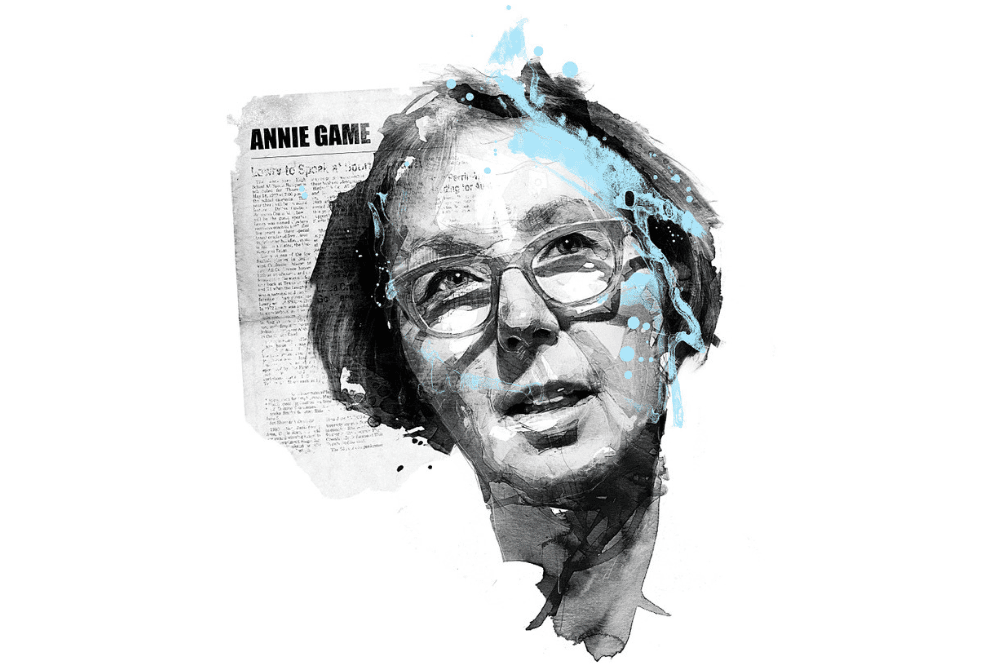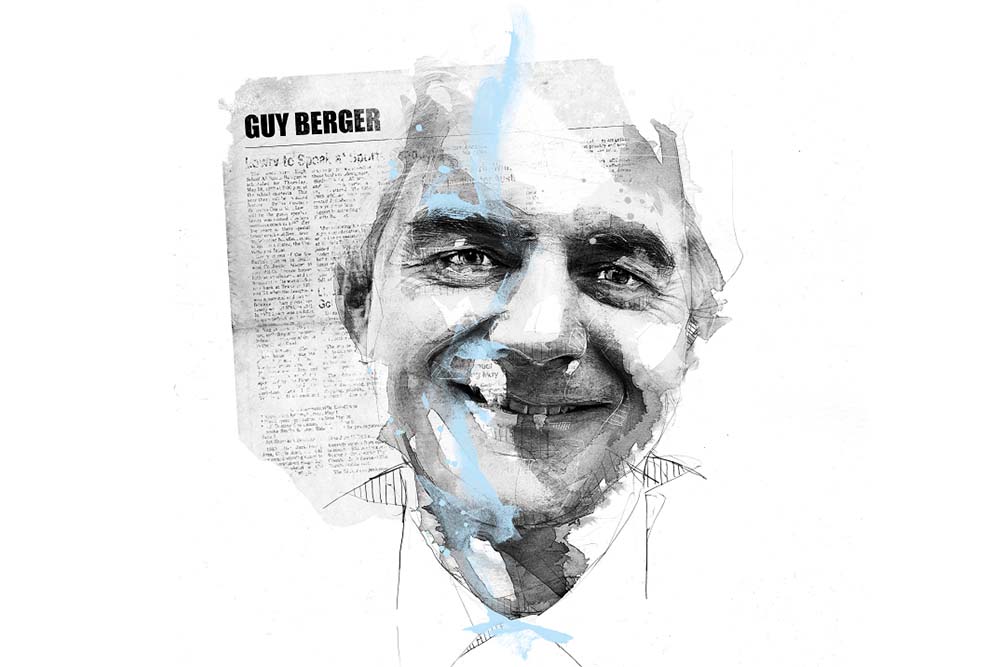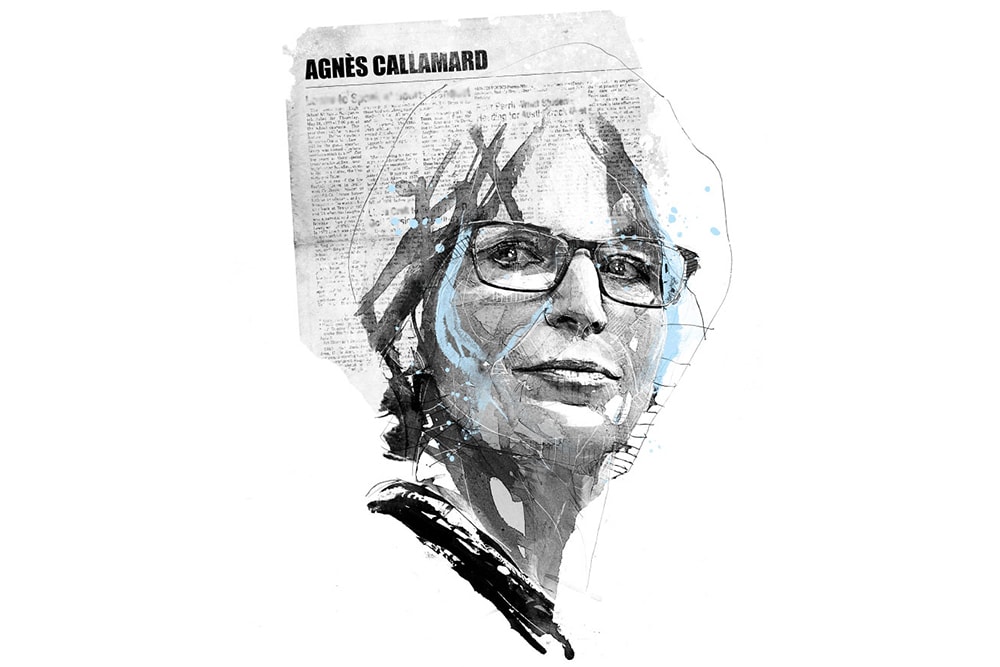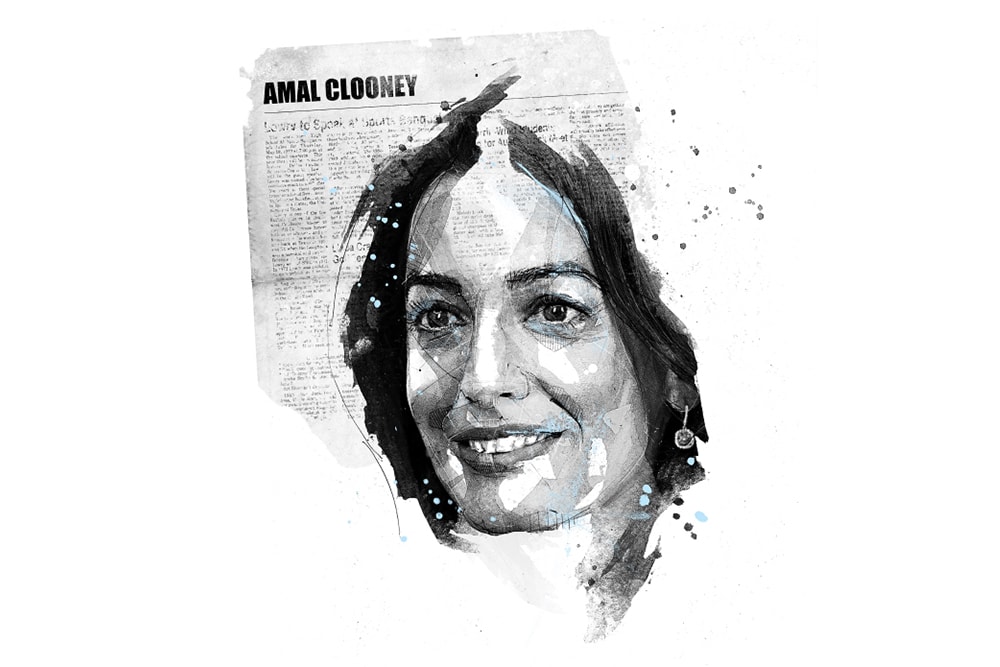A leading voice and sometimes polarizing figure in the long struggle for LGBTQI+ equality, Peter Tatchell has spent more than 50 years campaigning for human rights. He has suffered beatings, arrests, prosecution and harassment, but his passion for justice shows no signs of dimming.
When it comes to free speech, I am an equal opportunities free speecher. I even defend the right of others to mock and ridicule me. I may not like it. It might be unfair. But that’s democracy.
Dubbed ‘Saint Peter‘ by some in the LGBTQI+ community and a ‘gay gangster‘ by former Zimbabwean President Robert Mugabe, Peter Tatchell continues to provoke strong reactions. A human rights campaigner for more than fifty years, Tatchell is best known for his advocacy for LGBTQI+ rights and freedom of expression. In the course of his work, he has suffered hundreds of violent attacks, multiple arrests and prosecution.
Tatchell was born in Melbourne, Australia but has spent virtually all of his adult life in the UK. His sense of justice and taste for activism were obvious at an early age: whilst still at school he campaigned for Aboriginal land rights and against the Vietnam War, leading his headmaster to brand him a “communist”.
Tatchell moved to the UK in 1971. He had begun to identify as a gay man in the late 60s, and when he arrived in London, sexual intercourse between men had only been partially legalised in England and Wales for four years. Although the law had changed, attitudes were slow to evolve, and Tatchell threw himself into gay rights activism. He was involved in organising the UK’s first Pride March in 1972. He also joined the Gay Liberation Front which adapted the tactics of the US civil rights movement in order to confront homophobic prejudice. According to Tatchell: “We did protests such as staging sit-ins at pubs that refused to serve ‘poofs’”.
Tatchell took his activism abroad early on, and was chased by members of the Stasi (East Germany’s secret police) when he tried to promote gay rights at the World Youth Festival parade in East Berlin in 1973.
Tatchell has described the 1980s in the UK as a “decade of state-sanctioned homophobia”. This was a period in which the Police in Manchester – led by a Chief Constable who described gay people as “swirling around in a cesspool of their own making” – were targeting LGBTQI+ people for harassment and raiding gay clubs. During this time, Tatchell campaigned against the UK’s infamous Section 28 which prohibited local government authorities from “promoting homosexuality” (Section 28 was eventually repealed in 2003). He also became the public face of OutRage!, an LGBTQI+ activist group that confronted anti-gay bigotry and used theatrical stunts to ‘out’ public figures who were homophobic in public but gay in private.
As a member of OutRage! (and also away from it) Tatchell vociferously criticised Islamic, Jewish and Christian leaders for promoting anti-gay prejudice. In 1998, he famously mounted the pulpit to protest the Easter sermon of the Archbishop of Canterbury, George Carey [VIDEO] (Carey was opposed to gay marriage and to making the age of consent for gay men the same as it was for heterosexual couples); Tatchell was prosecuted for his actions and convicted under a little-used law banning protests in churches.
In 2006, Tatchell attended Moscow’s first Pride festival. He returned the following year to protest a ban on the parade and, whilst there, he and other LGBTQI+ activists were brutally beaten up by neo-Nazis and arrested by the police. Tatchell declared after the attack that he would “not [be] deterred one iota” from continuing his activism in Russia. He was detained again during the 2009 Moscow Eurovision Song Contest after protesting Moscow’s ban on Pride parades (which the city’s mayor had described as being “satanic”). Tatchell has also campaigned against the Russian Federation’s legislative assault on LGBTQI+ rights, and he has described President Vladimir Putin as the ”Czar of Homophobia”. In 2018, he was arrested in Moscow on the eve of the football World Cup for protesting the police’s torture of gay men in the Republic of Chechnya.
This activity does not come without a cost. In a 2009 interview with the Observer newspaper, Tatchell admitted that – despite his long history of public, often quite confrontational activism – he was still prone to great anxiety before an act of protest: “I feel physically ill and tend to want to pee a lot….I get a headache…there are moments when I’m actually shaking”.
Because of his activism, he has received death threats and hate mail, and for many years he was subjected to vile abuse from the British tabloid press. There has been a physical cost too: Tatchell suffers from mild brain damage which he attributes in part to the Russian neo-Nazi assault on him in 2006 and to an earlier attack in 2001 [VIDEO] which took place while he was attempting a citizen’s arrest of Zimbabwean President Robert Mugabe in Brussels.
Given the nature of Tatchell’s high impact, sometimes confrontational activism, it’s no surprise that the right to freedom of expression features so prominently among the many other causes for which he fights. In 2006, he described what free speech meant to him:
“I grew up in Australia in the 1960s, during a period of McCarthyite-style red-baiting. Because I opposed the US and Australian war against Vietnam, I was denounced as a communist and nearly lost my job. From firsthand experience, I know freedom of expression is a precious freedom that must be safeguarded. That is why I argue the right to free speech can be legitimately restricted only when it involves incitement to violence or libel/defamation. The threat of violence and the spreading of untruths diminish free, honest and open debate. Otherwise, speech must remain free. The rare exceptions are instances like not being free to publish terrorist bomb-making instructions. The price of living in a free society is that we are sometimes confronted with views we find offensive and insulting. Faced with bigoted, intolerant opinions, the most effective way to challenge them is by calm, reasoned debate to dispel ignorance and prejudice – not by bans and censorship. Physical threats and violence are unacceptable.”
His commitment to freedom of expression has seen him defend the infamous Danish cartoons of the Prophet Muhammad that provoked riots across the Middle East in 2005; it has seen him offer to testify in defence of a man who was arrested for making homophobic remarks in public; it has also led him to defend a christian baker who was found guilty of sexual discrimination after he refused to decorate a cake with the words “I support gay marriage”.
Tatchell’s devotion to free speech has seen him protest attempts by transgender activists to ban a small number of feminists (who have made offensive remarks about transgender people or questioned the validity of their identities) from speaking at universities and other institutions. Tatchell is a firm defender of transgender rights, but believes that “the most effective way to defeat bigoted ideas is not by proscription but by challenging and exposing them”.
Tatchell has long been a forceful critic of the dangerous practice known as ‘conversion therapy’ for LGBTQI+ people. In 2021, in response to the UK government’s lack of action over its 2018 promise to ban conversion therapy, Tatchell launched the Stop Dithering campaign.
In 2022, he criticised the UK government again for its approach to conversion therapy, this time for not including transgender people in its planned ban. He said:
“A ban on conversion therapy that is not trans-inclusive is not a genuine ban at all. Excluding trans people from protection against abusive, harmful conversion practices is shameful. It is a callous betrayal that will leave vulnerable trans people at the mercy of exorcisms, beatings, emotional blackmail and psychological brow-beating.”
In June 2023, the Peter Tatchell Foundation launched the #ApologiseNow campaign, demanding that UK police services publicly recognise – and apologise for – the persecution that they had submitted LGBTQI+ people to for decades. By April 2024, 16 police chiefs had publicly apologised for historic discriminatory law enforcement carried out by their forces.
Peter Tatchell has received numerous awards for his work. In 2006, he was listed as one of the New Statesman’s ‘Heroes of Our Time‘, in 2009 the Observer named him Campaigner of the Year, and in 2012 he was given a Lifetime Achievement Award at the UK’s Diversity Awards. Tatchell’s 55 years of human rights campaigning was recognised by the Sheila McKechnie Long-Term Achievement Award in 2022. Currently, he is the director of the Peter Tatchell Foundation, a non-profit human rights organisation.
Illustration by Florian Nicolle




